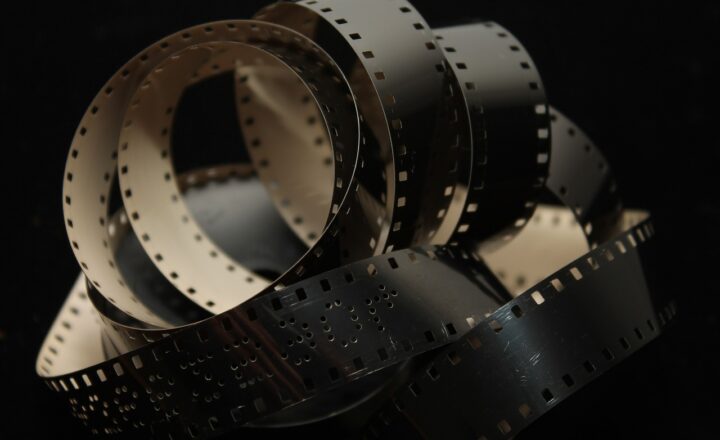
The landscape of storytelling has transformed dramatically with the advent of the digital age. No longer confined to conventional media outlets, audiences now possess platforms where they can generate, share, and analyze their interpretations of films and series. This proliferation of fan theories has not only engaged viewers more intimately but is also influencing the creative direction of filmmakers and producers like never before.
1. The Rise of Fan Theories in Popular Culture
The explosion of online communities in the past two decades—particularly across social media platforms and forums like Reddit—has led to a synthesis of collective creativity that influences mainstream cinema. Fans now actively contribute to what often begins as mere speculation about plots, characters, and outcomes.
Gone are the days when viewers passively consumed media. Today, fan theories can shape narratives, create buzz, and even alter the marketing strategies of studios. For instance, successful franchises like the Marvel Cinematic Universe (MCU) and Star Wars have cultivated robust online communities that partake in a form of modern folklore, where fan interpretations are just as valuable as canonical content.
2. Understanding Fan Theories
Fan theories are speculative narratives crafted by enthusiastic supporters of a series, movie, or book. These theories often seek to fill gaps, explain character motivations, and hypothesize future developments.
**Examples of Popular Fan Theories:**
- In the Harry Potter universe, fans have theorized about the true nature of Albus Dumbledore’s past, linking it to broader themes of power and morality.
- Fans of *Game of Thrones* dissected seemingly minor details and established connections that led to extensive discussions about character arcs and potential plot twists.
- The famous “Darth Jar Jar” theory suggested that Jar Jar Binks was secretly a Sith Lord—an idea that gained traction despite its initially humorous premise.
These theories create a deeper engagement with the content, encouraging audiences to think critically about the art they consume.
3. The Power of Audience Interaction
The digital age has transformed the power dynamics between creators and their audiences. This interaction is vividly displayed in how fan theories can lead to actual content development. Filmmakers and writers often monitor online discussions to gauge audience reactions and sentiments.
This feedback loop between fans and creators has several significant impacts:
- Content Refinement: Studios might pivot their scripts in response to prevalent theories; if a theory is particularly popular, writers may weave elements from it into their final products.
- Marketing Strategies: Viral fan theories can become integrated into promotional campaigns, generating buzz and increasing audience engagement before the release of a project.
- Franchise Longevity: Encouraging fan engagement through theories keeps them invested long-term in the franchise, ensuring a continuous conversation around the brand.
Filmmakers must recognize that audiences are not merely passive consumers but informed collaborators in the narrative journey.
4. Case Studies: Fan Influence on Filmmaking
Several recent films and series showcase the impact of fan theories on production decisions:
- Stranger Things: The Duffer Brothers have acknowledged that they actively participate in online discussions. Elements drawn from fan theories helped shape subsequent seasons, as the creators sought to answer viewers’ burning questions.
- Marvel Cinematic Universe: Marvel Studios frequently employs Easter eggs and references to fan-favorite theories, knowing that the excitement generated around speculation can translate into box office success.
- Star Wars: Filmmakers have aimed to satisfy longstanding fan theories while balancing original content. In *The Rise of Skywalker*, callbacks to popular fan-created narratives were evident, demonstrating that filmmaker awareness can boost audience satisfaction.
These case studies illustrate a hands-on approach to taking fan theories into account, proving that audience interaction can lead to innovative storytelling.
5. The Double-Edged Sword of Fan Influence
While fan theories can be beneficial, they also pose certain risks:
- Expectation Management: When fans have deep-seated theories about narrative direction, filmmakers risk disappointing audiences if the story diverges too drastically from those expectations.
- Creative Constraints: Overfocusing on fan theories can stifle the originality of the content, leading filmmakers to play it too safe instead of taking creative risks.
As filmmakers embrace fan theories, they must navigate the fine line between audience engagement and maintaining creative integrity.
6. Conclusion
The digital age has fundamentally reshaped the relationship between creators and audiences. The rising prominence of fan theories serves not only as a testament to audience engagement but also to the potential influence of this collective creativity on the storytelling craft itself. Studios that successfully integrate fan engagement into their creative processes can enjoy prolonged audience loyalty and enhanced storytelling.
As we move further into this era of hyper-connectivity, it’s clear that filmmakers must adapt to engage with their audience on a meaningful level. Embracing the influence of fan theories may well become a crucial aspect of successful filmmaking in the future.
With the evolving landscape of storytelling, we invite you to share your thoughts: How do you think fan theories will continue to shape the filmmaking process? What theories have influenced your understanding of your favorite films or series? Join the conversation and let’s explore the future of story together.








